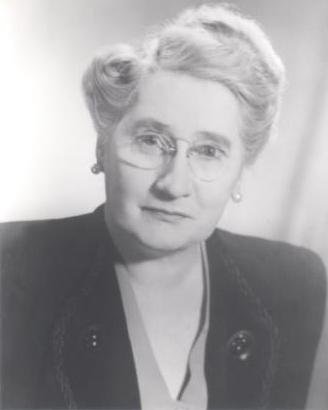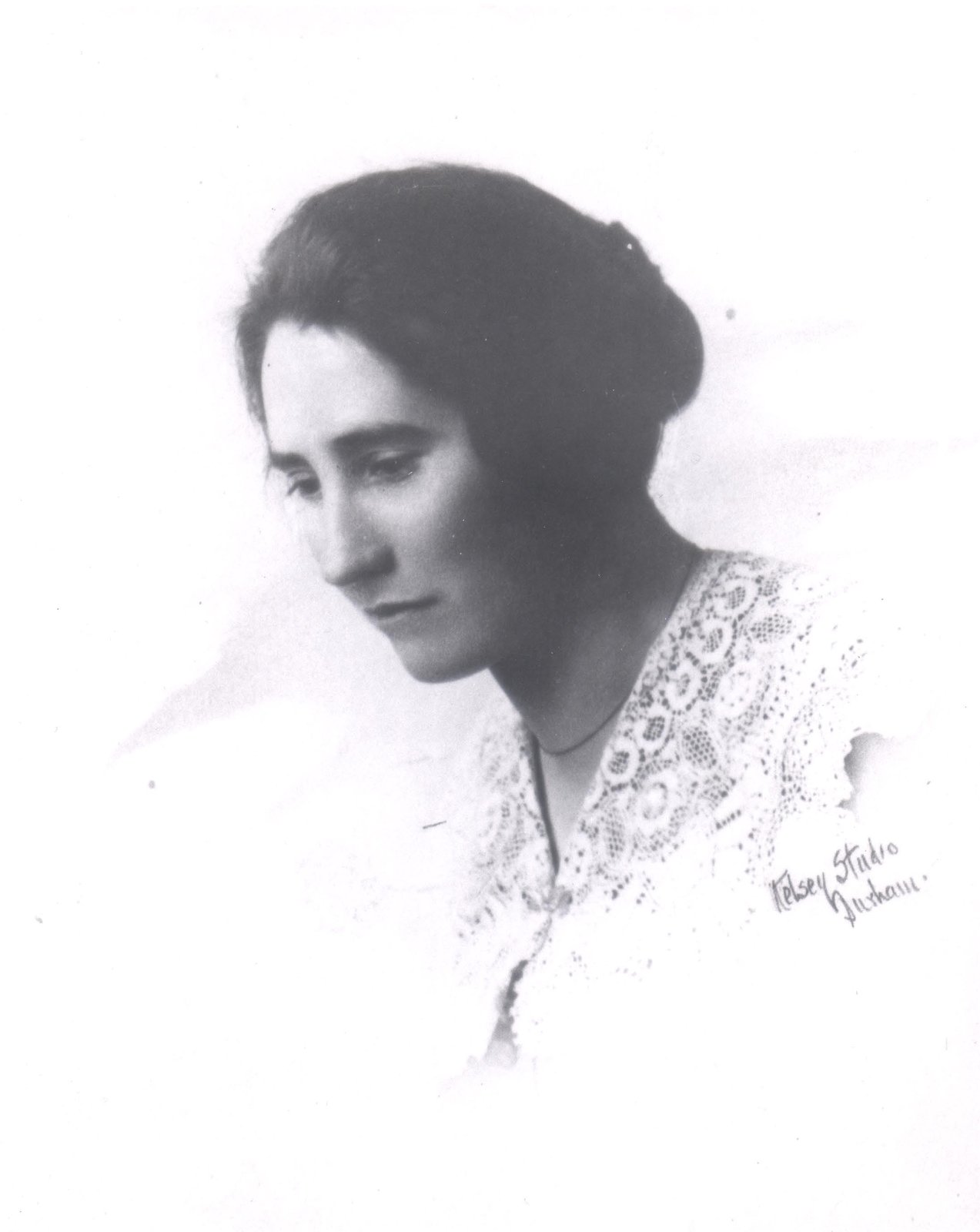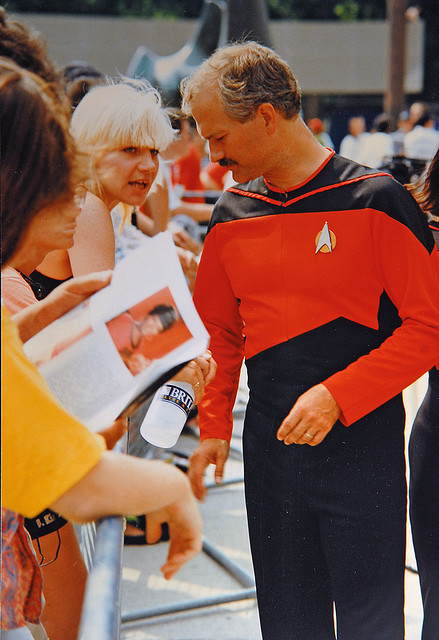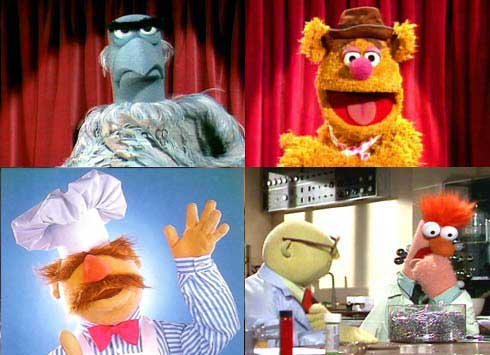1) What would a Harper majority look like? To me, scary, but I think that this author is intentionally trying to be terrifying:
While parties in modern Canada rarely ask for a majority expressly to do big things, it endows them with unfettered authority. A majority as prime minister allows you to summon and dismiss Parliament, set election dates and name the governor general, senators and judges, among other appointments.
By and large, you are — borrowing a line from Globe and Mail columnist Jeffrey Simpson — a "friendly dictator."
So what would Stephen Harper do? While he may pay lip-service to social conservatives, he is unlikely to reopen the debate on abortion, same-sex marriage and capital punishment. He knows that's playing with fire.
What he is more likely to do, though, is what he is doing already: appoint more conservative judges, deny funding to liberal-minded non-governmental organizations like Planned Parenthood, abolish the gun registry and get tough on crime.
Where he is likely to move aggressively is reshaping the state? Here, expect him to use the deficit as reason to shrink the size of government. That may mean slashing the public service, starving (or selling) the CBC, and privatizing government services.
Expect him to lower taxes and explore ways to empower the individual. Expect him to reform the Senate. Expect him to offer the provinces new authority, including Ottawa's residual powers. While he is unlikely to initiate constitutional reform (he doesn't like convening first ministers), expect the national government to be less national.
At the same time, watch for the Conservatives to give more substance to citizenship, which they think is too easy to acquire. There will be new emphasis on national history and national symbols, particularly the monarchy. The Conservative will continue to trumpet the North, espousing a new kind of nationalism.
Abroad, Canada will continue to regard the United Nations suspiciously. There will be no return to peacekeeping, as the Liberals suggest, or a human-security agenda. Military spending will rise while international assistance is reassessed. A foundering CIDA will be reorganized, even abolished.
The government will pursue a new deal with the United States on border and security issues. It will build on new free trade with Europe. Canada will remain Israel's best friend.
Those who expect the same tone and tenor of the last five years — a centrist stewardship, reflecting a comfortable moderation, veering right only on the margins — should not be surprised to see the empowered Conservatives abandon that kind of caution.
*shudder* Also, I just want to say that I don't think you need to make citizenship harder to get when the majority of adults born in Canada already can't pass citizenship tests. I remember my friends memorizing long lists of lieutenant-governors past, and I can't even name any of the current ones.
2) Reality Check on post-election scenarios and the constitution. This lays out potentials for what might/could happen with various election results. With a Conservative minority:
All we know for certain is that in this third scenario, a minority Conservative government would have to table a throne speech to lay out its priorities and a budget (the one in March was never passed), presumably within the next month or so.
If a minority Conservative government were to lose either of those votes, or any confidence vote within, say, four to six months, Harper would have to resign. But he would have the option of asking Gov. Gen. David Johnston for another election.
Normally, the governor general is supposed to act on the "advice" of the prime minister. But in special circumstances like these, "the reserve powers of the Crown come into play," Franks points out.
"These reserve powers permit the governor general to reject Mr. Harper's advice if he requests a dissolution when he holds a minority of seats in the House of Commons and is defeated early in the session of the new Parliament."
At that point, the governor general would inquire whether another party leader could gain the confidence of the House and govern instead, with the support of one or more other parties.
Franks suggests Johnston might well make the leaders commit to such an arrangement for 18 months to two years; indeed, commit to it in writing and make the agreement public.
Franks is basing these time limits - at least four to six months before Johnston would grant another election, and 18 to 24 months for an alternative government to work - on what Adrienne Clarkson wrote about her preparations in case Paul Martin's minority Liberal government fell back in 2004.
That was the year, incidentally, when Harper, Bloc Leader Gilles Duceppe and NDP Leader Jack Layton prepared a letter to remind Clarkson that she didn't necessarily need to grant an election if Martin lost a confidence vote in the House.
Overall, Franks says, "the governor general's first and most important duty is to ensure that there is a prime minister."
3) There have been some youth debates this week, which are interesting to look at not only because it's young people being completely politically involved, but also because they actually cover youth issues (and articulate what they think youth issues actually are). For example:
Elizabeth Dubois, chair of the campus political action committee for the Young Liberals of Canada, reminded young Canadians of the Liberals' Learning Passport, which would provide $1,000 of financial assistance to post-secondary students each year for up to four years.
She said the platform promise was designed to ensure youth had access to "tools to build our future."
Alykhan Velshi, who is working a second election in the Conservative party war room, insisted that the Liberal plan isn't the best option for youth.
"It's very deep in their platform . but they're also taking something away. They're going to raise taxes on students," he warned, referring to the Liberals' plan to eliminate current textbook tax credits currently offered to students.
The pair was joined by Isaac Cockburn, who has worked at NDP headquarters in Ottawa and as an assistant to the NDP's Nathan Cullen, and Jonathan Halasz, co-president of the Carleton University Green party. Each party representative is under the age of 30.
The Bloc Québécois declined to join the English-language debate.
Cockburn immediately echoed his party leader Jack Layton's message that "Ottawa is broken."
"This type of back and forth is what he's talking about," he said, promising he wouldn't join "rigorous partisan stuff" as his peers poked at their opponents' policies.
Cockburn said Layton was the sole leader who would address rising tuition fees, while other parties have said the concern is not a federal responsibility.
4) It's hard to respect our MPs when their behaviour would be getting them a time-out if they were children.
How can the grown men and women who wish to govern our nation expect to be taken seriously as trustworthy, thoughtful people when their behaviour suggests they are hysterical toddlers? Whenever I tune into Question Period I last about 20 seconds before I have to change the channel because the bickering sounds like an out-of-control Middle School classroom.
So how about it, folks? If you want to govern the country, how about showing some self-control and good sense? Quit shouting in the background while other people are trying to speak. Quit calling each other names. Quit using scare tactics to try to convince the populace that negotiating in a coalition scenario is worse than having one man’s ideas shoved down our throats.
5) If young women voted, things would be different. We already know that the composition of Parliament is more likely to reflect the votes of older men rather than younger women. This survey also points out to some striking differences of opinion between young women and young men.
“Time after time I have seen in national polls that young women tend toward views that favour environmental sustainability and social justice, while young men’s attitudes tend toward maintaining the status quo,” says the President of McAllister Opinion Research.
Here's some stats:
Agree/Strongly agree that “Canadian girls receive adequate support to achieve their potential in life.”
63% of young women
100% of young men
Agree/Strongly agree that “Violence against women is a serious problem in Canada today.”
92% of young women
42% of young men
When asked if the following facts should be a concern or not for Canadians, here is what young women and men had to say:
“Teenage girls are 3 times as likely as boys to suffer from depression”
96% of young women are concerned
61% of young men
“Men outnumber women 4 to 1 among Canada’s elected representatives”
80% of young women are concerned
38% of young men
“2/3 of minimum wage workers in Canada are women”
90% of young women are concerned
55% of young men
I think the first statistic is possibly the most striking. All the young men surveyed felt Canadian girls receive adequate support to achieve their potential, but less than two thirds of the young women surveyed agreed.















